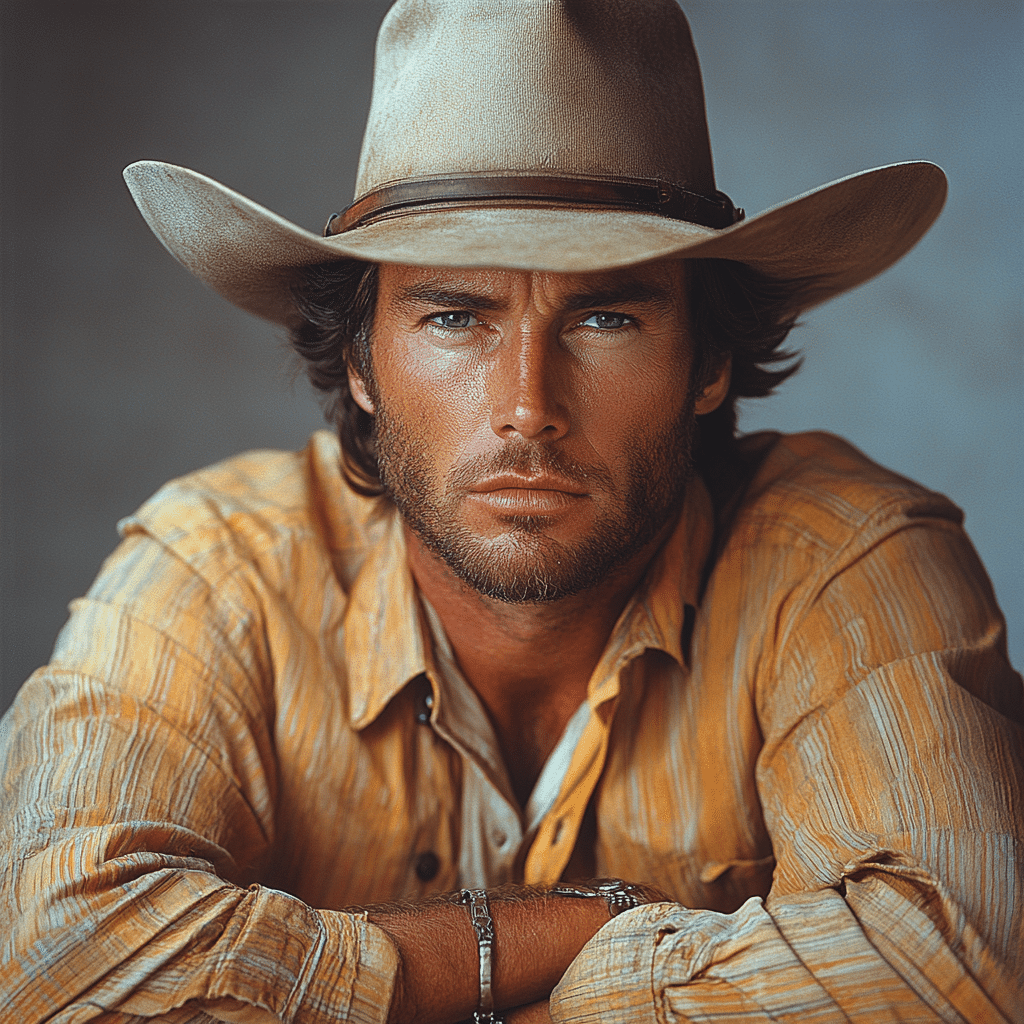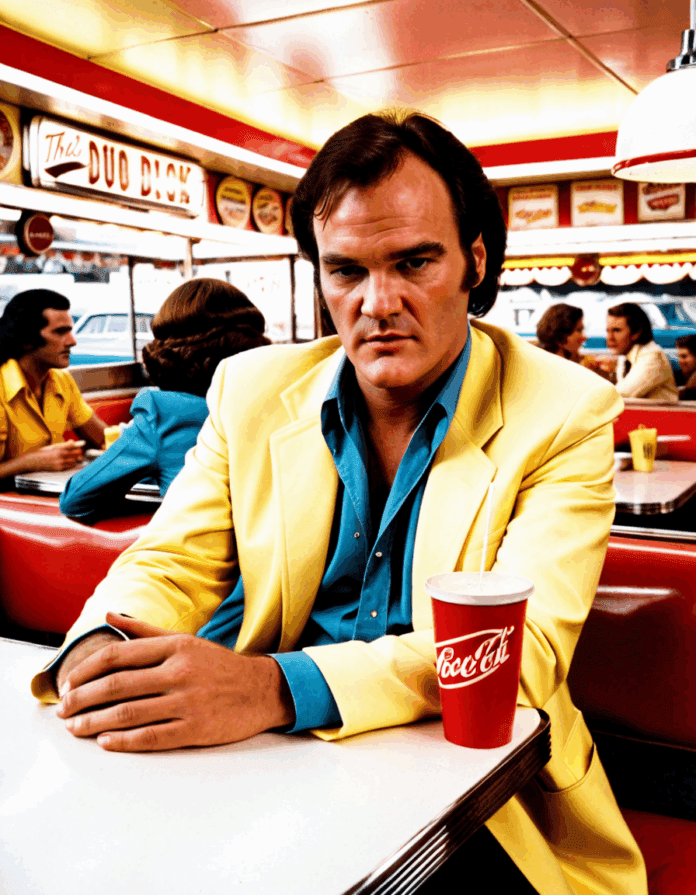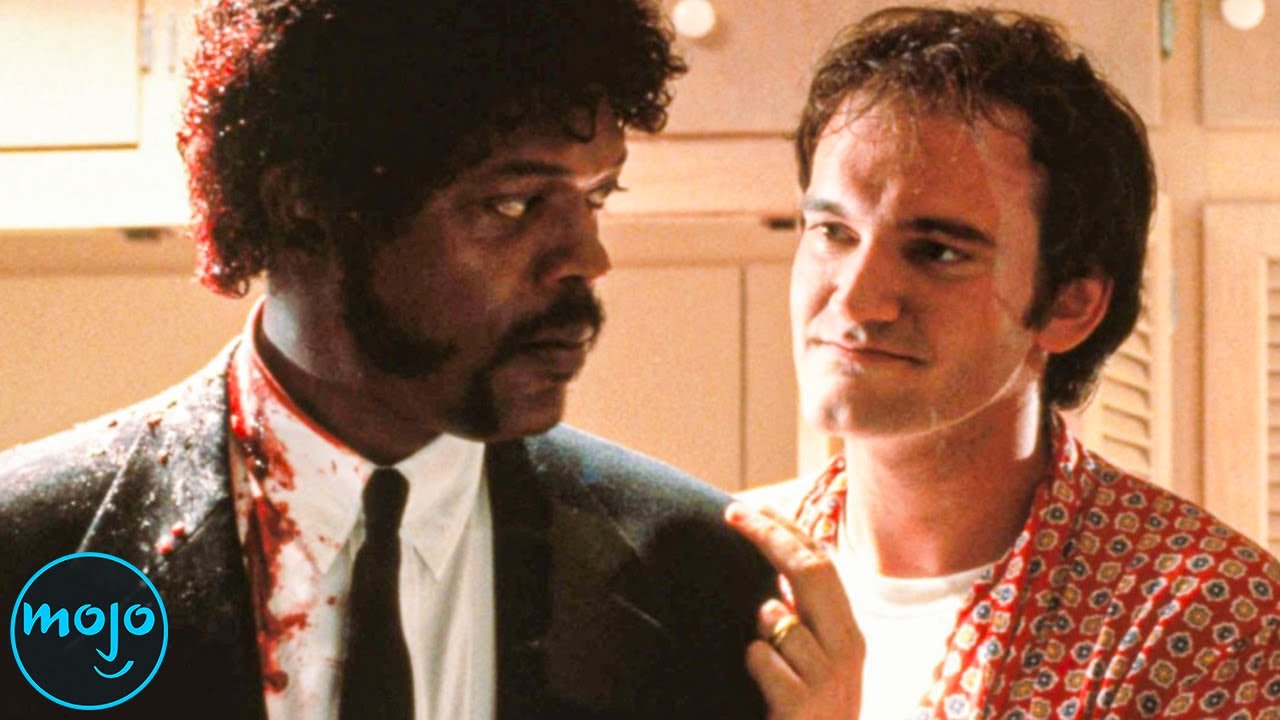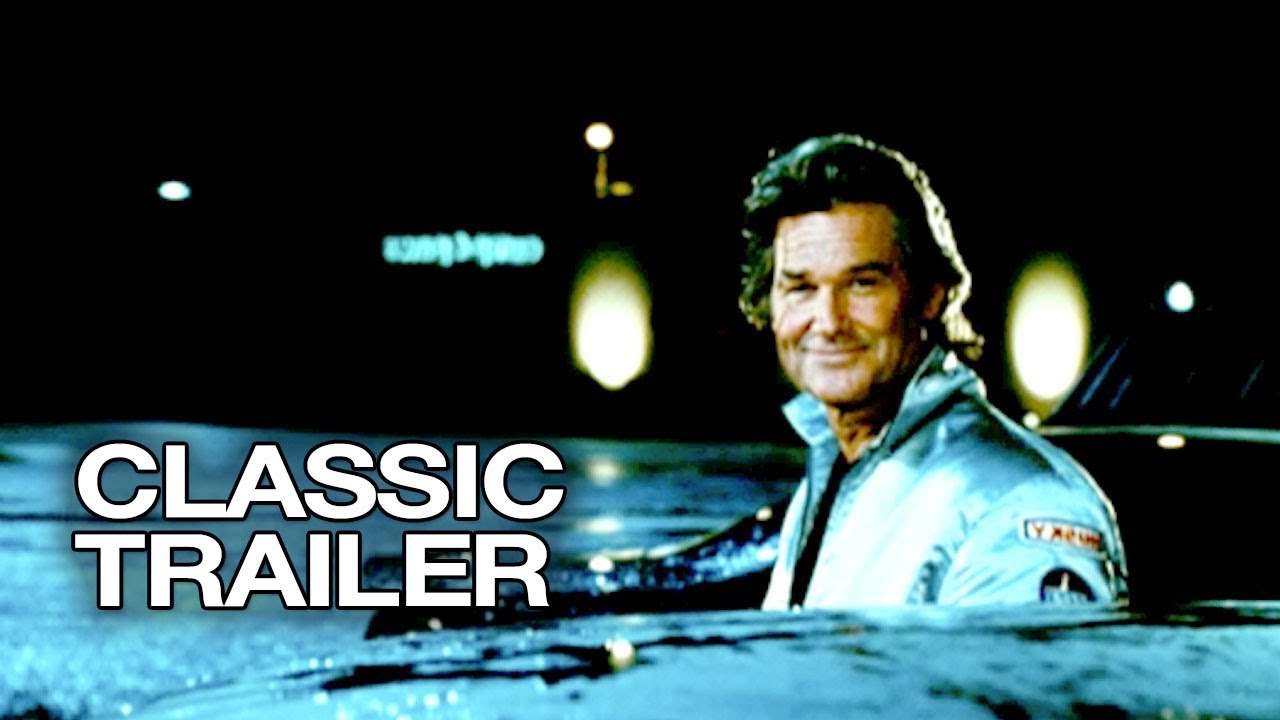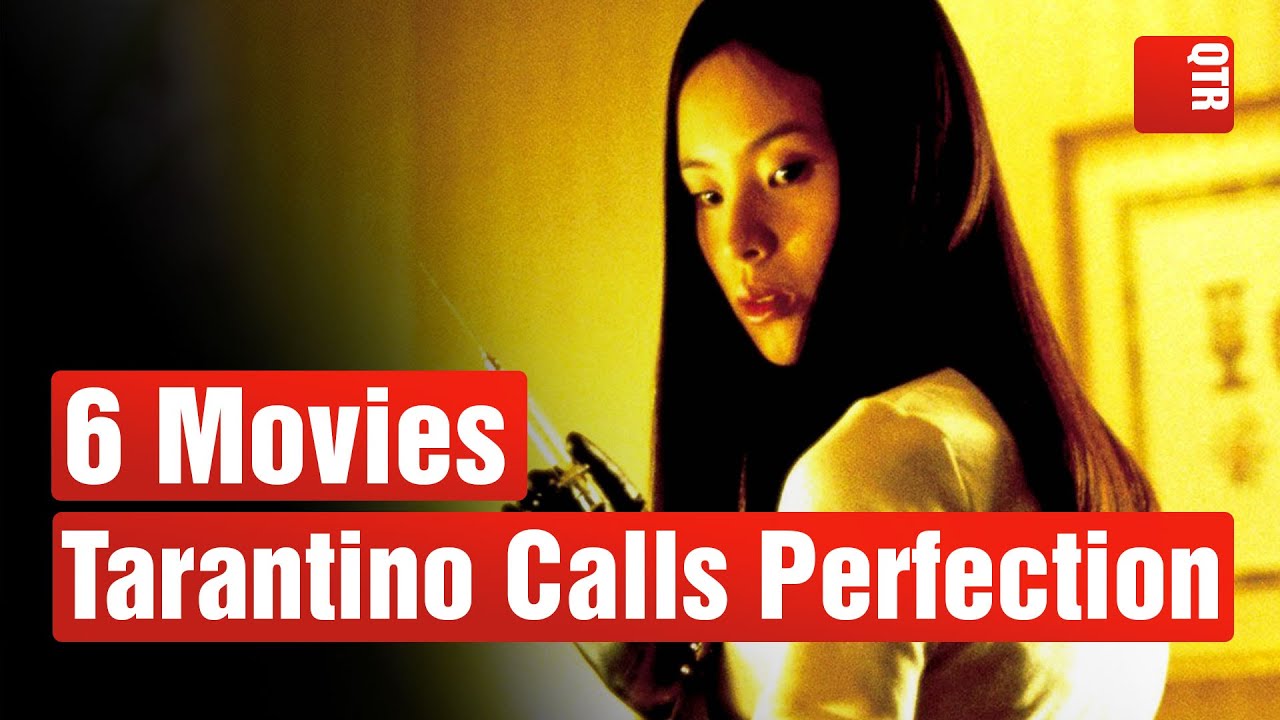Quentin Tarantino is a name that resonates with film enthusiasts and casual viewers alike. His movies, characterized by sharp dialogue, nonlinear narratives, and a deep-seated appreciation for film history, have undeniably reshaped modern cinema. By pushing conventional storytelling limits, Tarantino’s films not only entertain but also provoke thought. So, let’s dive into the evolution of Tarantino’s cinematic genius and highlight seven pivotal Quentin Tarantino movies that have redefined the edges of storytelling.
Top 7 Quentin Tarantino Movies: Pioneering New Cinematic Boundaries
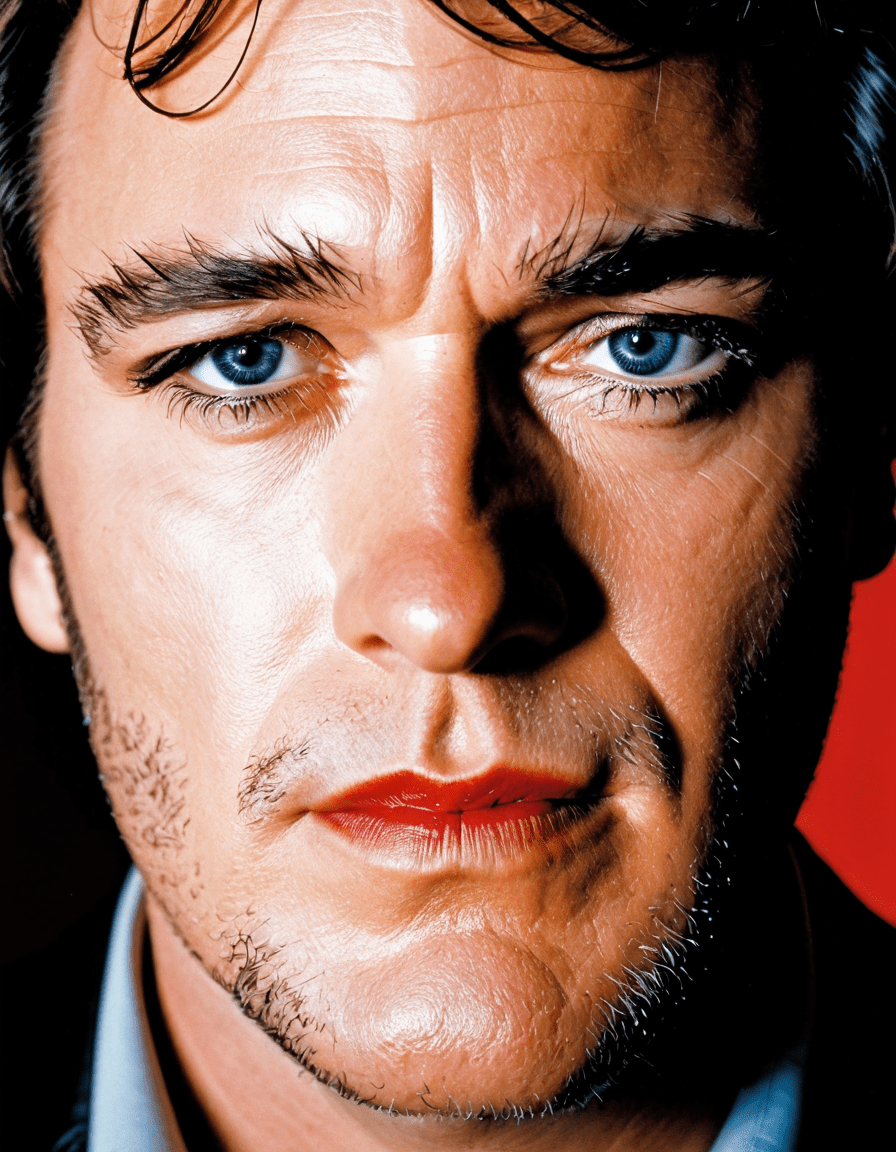
1. Pulp Fiction (1994)
Ah, the film that turned Tarantino into a household name! Pulp Fiction showcases a bold non-linear narrative woven with quirky characters like Vincent Vega and Mia Wallace. The eclectic soundtrack and iconic quotes filled living rooms and coffee shops everywhere, challenging traditional film structures. It’s the type of flick that gets everyone talking, influencing a generation of filmmakers who yearned to replicate its magic. Seriously, who could forget “Royale with Cheese”?
2. Reservoir Dogs (1992)
Tarantino’s directorial debut, Reservoir Dogs, is like a breath of fresh air in the film industry. This film broke ground with its sharp dialogue and moral gray areas, setting the stage for intense, character-driven storytelling. Tarantino’s fearless depiction of violence, combined with dark humor, laid a foundation for the brutal yet compelling narratives we see in modern cinema, even drawing comparisons to the storytelling found in Clint Eastwood’s films.
3. Kill Bill: Volumes 1 & 2 (2003, 2004)
Talk about a wild ride! Kill Bill takes viewers on a genre-bending journey that pays homage to martial arts films and spaghetti westerns. From ultra-violent swordfights to anime sequences, Tarantino flawlessly blends different styles, crafting a visual language that appeals to all kinds of fans. It’s a masterclass in merging genres, leaving audiences craving more of his dynamic storytelling.
4. Inglourious Basterds (2009)
With Inglourious Basterds, Tarantino takes historical fiction to a whole new level. This World War II movie showcases his knack for hyper-stylized violence while weaving complex narratives that reshape history as we know it. The tension-filled dialogue, especially between characters like Hans Landa and Shoshanna, reveals the moral complexities of war—as deep and serious as Clint Eastwood’s own character studies.
5. Django Unchained (2012)
Django ain’t your average Western hero. Django Unchained tackles the heavy topic of slavery through a blend of dark humor and revenge. Tarantino’s unapologetic take on racial themes forces viewers to confront uncomfortable truths about America’s past. This film challenges complacency, setting itself apart from Hollywood’s often sanitized narratives, and sparks discussions about representation that are still relevant today.
6. The Hateful Eight (2015)
This film takes us back to the classic Westerns while focusing heavily on dialogue and character development. The Hateful Eight explores themes of morality and trust in a confined space, echoing Clint Eastwood’s storytelling charm. With a minimalistic setting and a cast of misfits, Tarantino dives deep into the human psyche, serving a plate of tension that keeps audiences on the edge of their seats.
7. Once Upon a Time in Hollywood (2019)
In Once Upon a Time in Hollywood, nostalgia reigns supreme as Tarantino reflects on the fading glamour of the Golden Age of Hollywood. By blending fictional personas with actual historical figures, he critiques the film industry with a nostalgic lens. The result? A complex narrative about film-making’s golden days that showcases how Tarantino pushes biographical storytelling boundaries while keeping our hearts warm with nostalgia.
Quentin Tarantino and the Evolution of Genre Film
Tarantino doesn’t just create films; he composes symphonies of genre-bending narratives. His works invite filmmakers to examine genre conventions and explore the subversive potential for storytelling. Movies like Pulp Fiction and Django Unchained illustrate how you can twist and impact classic genre expectations to convey powerful societal messages.
This playful yet serious take on genres has paved a path for a richer dialogue within the film community. For the discerning viewer, Tarantino’s films become a means to think critically about the implications of the genres they belong to. The blending of humor and violence in his narratives encourages fresh perspectives and leaves audiences hungry for more.

The Unique Impact of Quentin Tarantino
So, what’s the secret sauce that makes Quentin Tarantino shine? It’s his ability to craft cinematic experiences that resonate long after the credits roll. His films delve deep into themes of violence, morality, and redemption—aligning him with greats like Clint Eastwood. Tarantino’s witty, layered dialogue isn’t just for laughs; it acts as a mirror reflecting societal standards and practices.
As cinema shifts and evolves, one thing remains clear: Tarantino has set a high bar for storytelling. His films push against the norm, asking filmmakers and fans alike to reconsider what stories deserve to be told. As we forge ahead in this dynamic movie landscape, Tarantino’s distinct voice will continue to inspire and influence the next generation of storytellers.
In summary, Quentin Tarantino’s movies not only entertain but also redefine cinematic boundaries. By weaving together influences from various genres, he creates works that provoke thought and dialogue, making him a true innovator in the film industry. If you haven’t yet explored the extensive repertoire of Quentin Tarantino movies, you’re missing out on cinema that dares to push the edge. Give them a watch—you won’t regret it!
Quentin Tarantino Movies That Redefine Cinema’s Edge
A Unique Style and Soundtrack
Quentin Tarantino is renowned for more than just his captivating storytelling; his films have some of the coolest soundtracks in cinema history. For instance, did you know that the iconic track “Stuck in the Middle with You” in Reservoir Dogs is forever linked to a notorious scene involving an ear-cutting? This attention to music sets the tone and immerses viewers deeply, much like the powerful scores in Evangelion. When you consider how the right song can elevate a moment, it’s no wonder that Tarantino’s choices resonate so strongly with audiences, keeping them coming back for more.
The Art of Dialogue and References
One key feature of Quentin Tarantino movies is the sharp and witty dialogue that often references pop culture. His knack for incorporating lines from various genres, including Westerns and horror films, shows a love for cinema that’s almost infectious. For example, the playful banter in Pulp Fiction hints at a deeper understanding of human foibles, almost like a dance between characters, evoking the same charming rhythm found in Blues. This blend of homage and originality makes watching his films a delightful experience, drawing in even the most casual moviegoers, much like the anticipated excitement surrounding The Hunger Games 2.
Shattering Norms and Creating Buzz
Tarantino isn’t one to shy away from controversy, often intertwining violence with humor. His bold approach pushes boundaries but also initiates conversations that ripple through the movie industry. Take Inglourious Basterds, for example; it takes World War II and gives it an audacious twist that challenges historical narratives. Similarly, the film Puss in Boots: The Last Wish charms with its lighthearted adventure yet carries deeper themes about perseverance and fate, valued by audiences of all ages. It’s this blending of seriousness with levity that highlights Tarantino’s knack for storytelling, making viewers ponder over issues that matter while being entertained—a juggling act hard to master, much like the search for the best time to visit Grand Canyon. Tarantino movies continue to spark debates and thrill fans, solidifying his status as a true trailblazer in filmmaking.
